Ibuprofen: Dr Stewart Adams who helped discover drug dies at 95
- Published
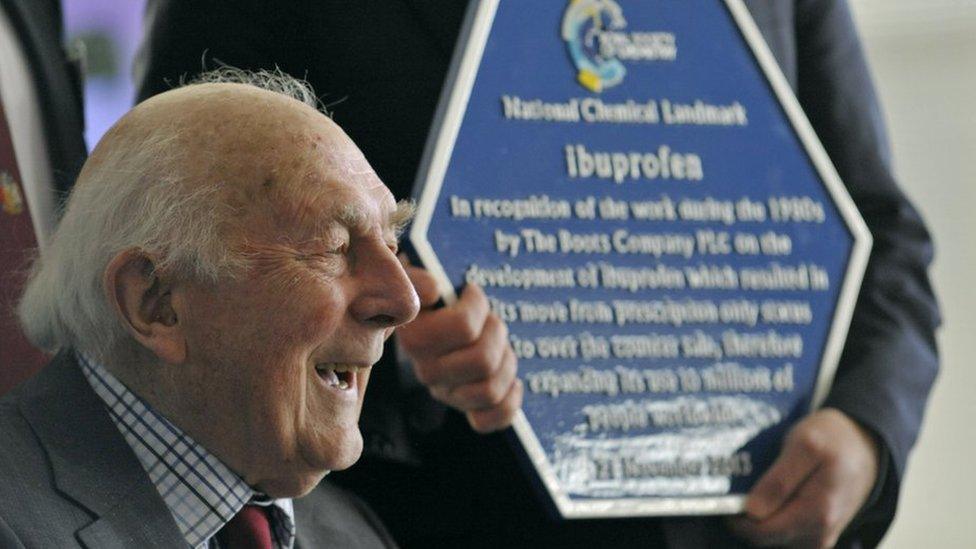
Dr Stewart Adams was honoured for his research which led to the discovery of ibuprofen in the 1960s
The man who discovered painkiller ibuprofen worked when he cured his own hangover has died aged 95.
Dr Stewart Adams was involved in 10 years of trials of the drug and endured a seven-year wait for it to be approved as a prescription.
He had joined the research department at Boots after studying pharmacy at the University of Nottingham.
In 2015, Dr Adams told the BBC taking the drug for the first time gave him a clear head to deliver a speech.
His son Chris, who lives in Nottingham, confirmed his father had died on Wednesday.
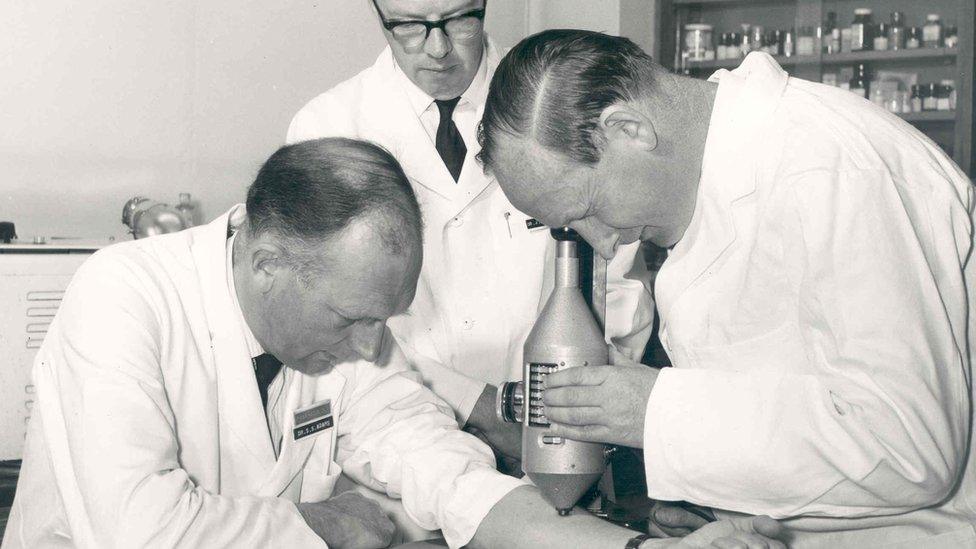
Dr Stewart Adams, Dr John Nicholson and Mr R Cobb studying degrees of inflammation using a colour intensity measuring device at Boots
Professor Kevin Shakesheff, from the University of Nottingham, said Dr Adams's career and contribution to patients was "inspiring".
"He is remembered for his successes in creating one of the most important painkillers in world but, as with many inspirational people, he had to bounce back from failures in earlier clinical trials before he and his team created ibuprofen," he said.
"His life is a reminder to everyone in Nottingham that we can change the world through the work we do in our local companies, hospitals and universities."
Dr Adams, who was born in 1923 in Byfield, Northamptonshire, left school aged 16 and started an apprenticeship in a retail pharmacy run by Boots.
This led to a degree in pharmacy at the University of Nottingham followed by a PhD in pharmacology at Leeds University, before he returned to the research department at Boots Pure Drug Company Ltd in 1952.
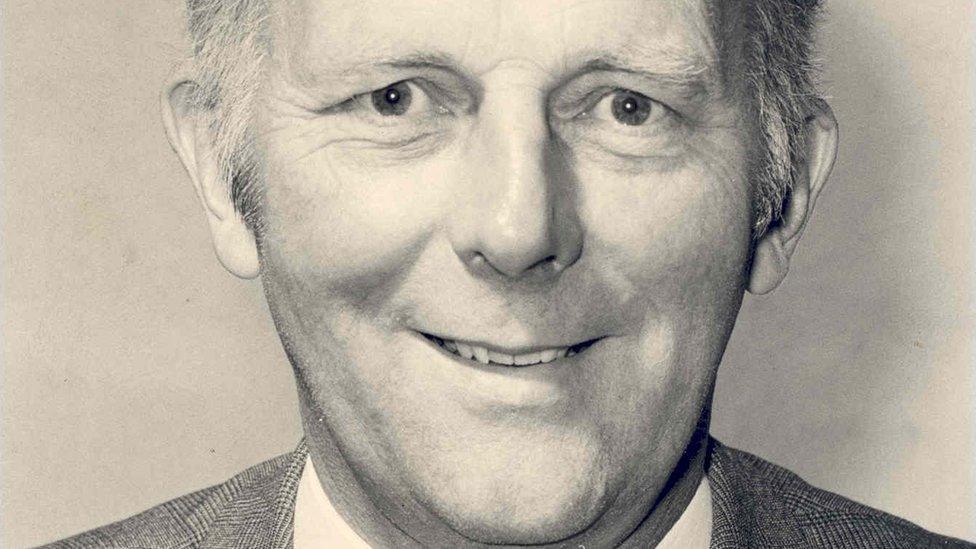
Dr Stewart Adams, photographed here in 1970, told the BBC in 2015 what he was most pleased about was that hundreds of millions of people worldwide are taking the drug he discovered
Dr Adams had been honoured for his research, with an honorary doctorate of science from the University of Nottingham, and two blue plaques from the Royal Society of Chemistry.
He remained with Boots UK for the rest of his career, becoming head of pharmaceutical sciences.
He told the BBC in 2015 what he was most pleased about was that hundreds of millions of people worldwide are now taking the drug he discovered.


Ibuprofen discovery timeline
1950s: Work starts to find a drug to treat rheumatoid arthritis that has no side effects
1958: After hundreds of compounds are made and screened for activity, a compound called BTS 8402 is given a clinical trial but it is found to be no better than aspirin
1961: A patent is filed for the compound 2-(4-isobutylphenyl) propionic acid - later called ibuprofen
1966: Clinical trials of ibuprofen take place in Edinburgh and its anti-inflammatory effect is seen in patients
1969: Ibuprofen is launched in the UK on prescription only
1983: Ibuprofen becomes available over the counter because of its safety record

Follow BBC East Midlands on Facebook, external, on Twitter, external, or on Instagram, external. Send your story ideas to eastmidsnews@bbc.co.uk, external.
- Published15 November 2015
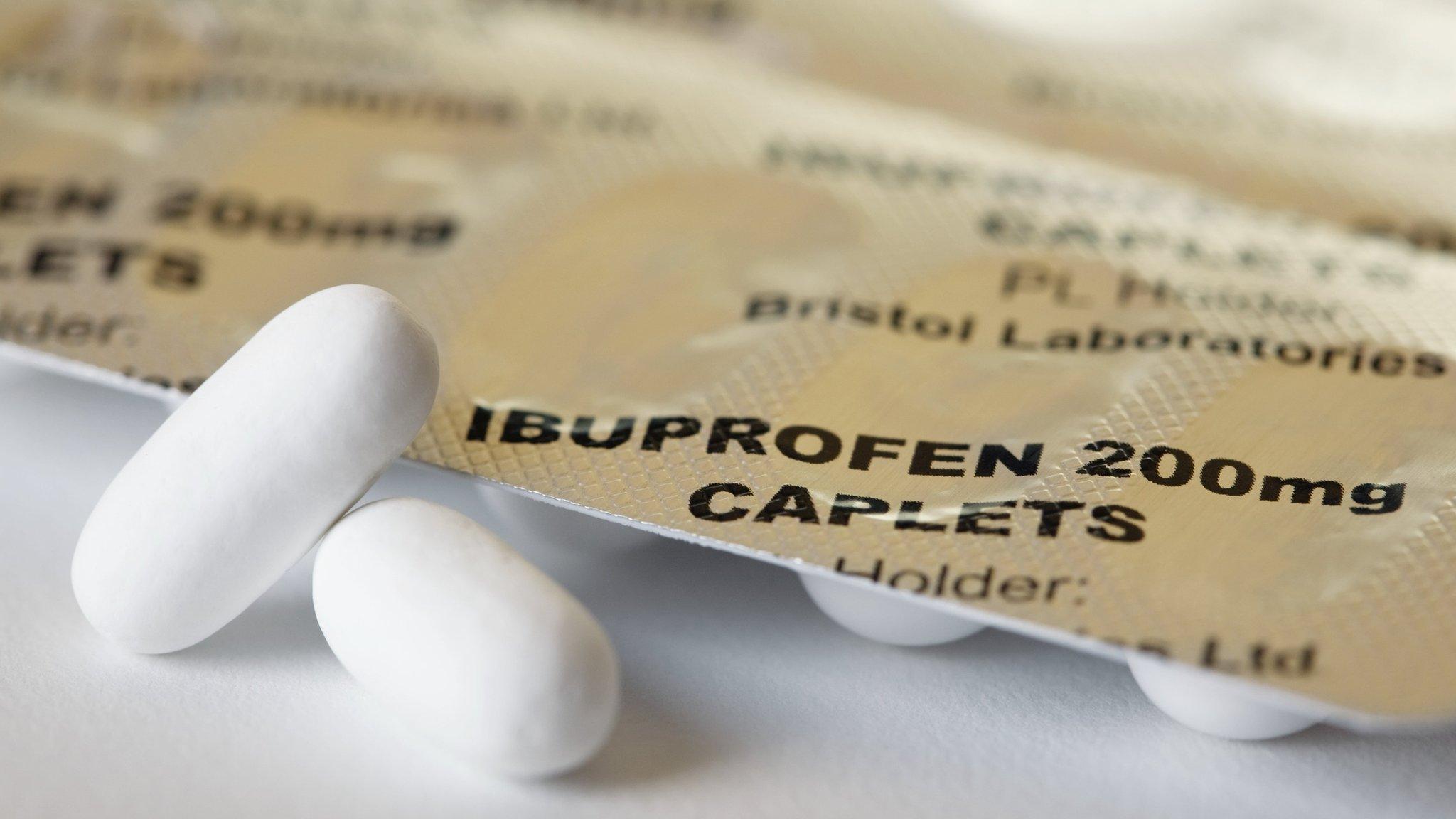
- Published26 May 2013
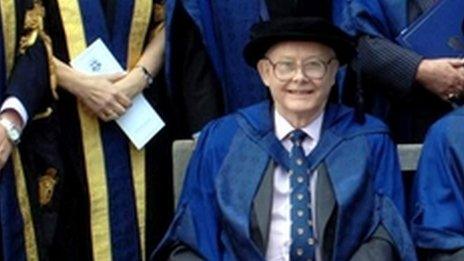
- Published14 December 2011
